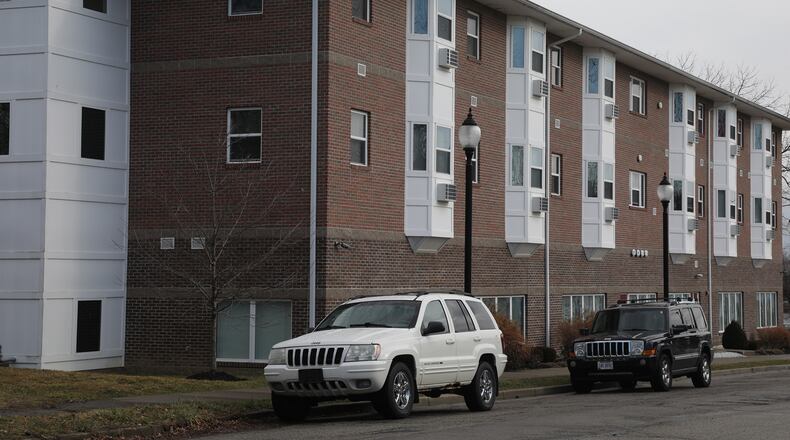The nonprofit that provides services to the area’s homeless is looking to sponsor the building of 40 units of affordable housing, with most of the units to be located in the 300 block of South Yellow Springs Street.
The idea is to have 30 units catered to single adults and 10 units for families that would be spread out as part of a project that is estimated to cost about $9 million, Bradley said.
Bradley said the region is in need of that type of housing, especially as homelessness has increased during the coronavirus pandemic. Some homeless cases are tied directly to the economic impact of the pandemic, she added.
In August, Interfaith had to create a waiting list for emergency shelter services for the first time in over a decade due to a spike in demand.
The nonprofit traditionally operates two congregant living shelters in the county. One serves single men while the other serves women and children. However, those shelters have been closed since March due to safety concerns related to the coronavirus pandemic.
Alternative forms of emergency shelter, such as hotel and motel rooms, have been used instead throughout the pandemic.
The goal is to transition those from emergency shelter eventually to more permanent housing. In the middle of January, there were 195 people in emergency shelter in Clark County, including 78 children. Bradley said 122 people were on the waiting list for those services.
She said 85% of the 475 people who have utilized emergency shelter services in Clark County since March have been able to access permanent housing.
However, the demand for those type of units are still high. Bradley said more permanent housing is needed to open up space in the county’s emergency shelter and transitional housing programs.
Interfaith already manages Mulberry Terrace, on West Mulberry Street, which offers 36 units of permanent housing as well 10 additional units at different sites. That apartment complex opened in 2014 and provides supportive services on site for tenants, including case management and health services.
The new project that will be titled Mulberry Spring will offer similar services, Bradley said. She said they are currently looking at how much funding will be needed for the project and expects construction to start at the end of 2022 or in early 2023.
Currently Interfaith is looking at different properties that would be needed for the family units as well as looking to send an application for permanent housing tax credits through the Ohio Housing Financing agency.
By the numbers:
40 - number of units of permanent housing that will be associated with the Mulberry Spring project
46 - units of permanent housing built as part of the Mulberry Terrace project
475 - number of people in Clark County who utilized emergency shelter services between March and the beginning of January
About the Author

